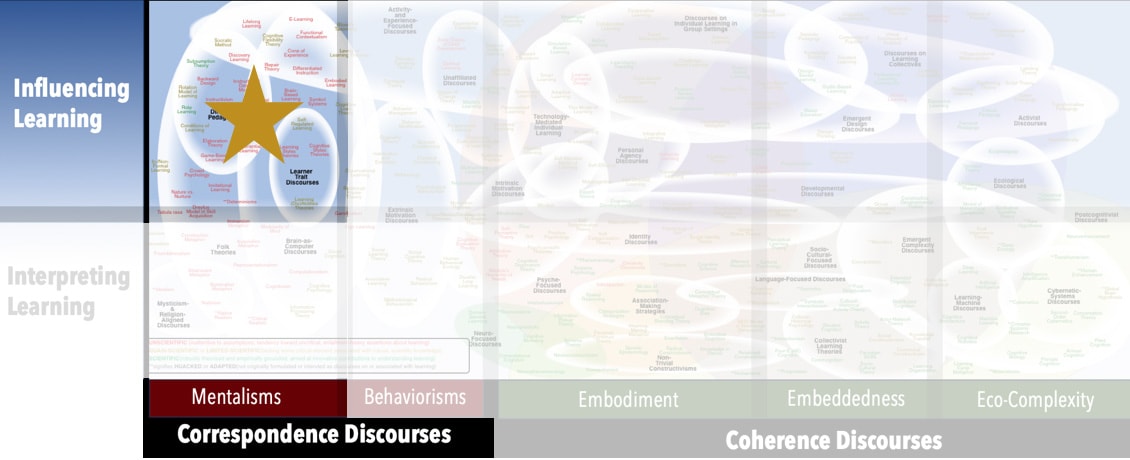AKA
Conditions for Learning
Dispositions for Learning
Gagne-Briggs Conditions for Learning
Focus
Rote masteryPrincipal Metaphors
- Knowledge is … external facts (roles, actions, and information)
- Knowing is … routinized elicitation of mastered knowledge
- Learner is … an acquirer (individual)
- Learning is … internalizing, mastering
- Teaching is … training
Originated
1960sSynopsis
Conditions of Learning is a pairing of classifications, one focused on kinds of learning and the other on events of instruction. It is founded on a linear, hierarchical model of learning, and is thus concerned with mastery at one level before moving to the next. Five major categories of learning are identified (verbal information, intellectual skills, cognitive strategies, motor skills and attitudes), and each is seen to require different types of instruction. To that end, nine possible instructional events are delineated (gaining attention, informing about objective, stimulating recall, presenting stimulus, providing guidance, eliciting performance, providing feedback, assessing performance, enhancing retention).Commentary
One of the main foci of the original formulation of Conditions of Learning was military training – and it’s telling that the theory was seen to be equally applicable to life in public school classrooms. The fact that the two contexts were seen as sufficiently similar suggests a need to examine assumptions about aims of education, authority structures, nature of knowledge, and so on.Authors and/or Prominent Influences
Robert Gagné; Leslie BriggsStatus as a Theory of Learning
Conditions of Learning is not a theory of learning.Status as a Theory of Teaching
Conditions of Learning is a theory of teaching – and an especially narrow one at that.Status as a Scientific Theory
With regard to the range of interest of Conditions of Learning – that is, the span of competencies that can be readily mastered – there is evidence that its methods and emphases are effective. However, the theory is lacking when it comes to learners actually participating in their own learning. Consequently, Conditions of Learning does not meet our criteria for a scientific theory.Map Location

Please cite this article as:
Davis, B., & Francis, K. (2024). “Conditions of Learning” in Discourses on Learning in Education. https://learningdiscourses.com.
⇦ Back to Map
⇦ Back to List
